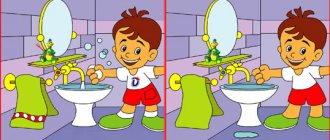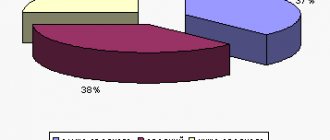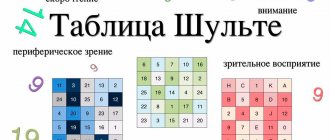Child development plays an important role for parents. Parents try to learn as much as possible about what skills their child should have by a certain point. But around school age, a child may develop poor memory. What to do in this case? Why might a baby have problems with memorization and memory in general? When is this considered the norm, and in what cases is it necessary to raise the alarm and take decisive action? The answer to all this is not as simple as it seems. Each child is an individual. And therefore, it is difficult to predict the true cause of poor memory. What scenarios are most often encountered in practice? And is it possible to somehow improve children's memory?
Neurosis
Does your child have a very bad memory? What to do in this situation? Already from the first year of a baby’s life, memory problems can be noticed. In such circumstances, it is recommended to visit a neurologist. After all, the problem may lie in neurosis.
With this disease, the child’s nervous system and brain are affected. Not a very dangerous phenomenon, it is common among children and adults. But nervousness does not have the best effect on memory. It is difficult for the child to understand what is happening, and some difficulties also arise with memorization.
If the problem is neurosis, then the neurologist will definitely prescribe a set of exercises and may even prescribe pills to increase attentiveness and mental development. In the case of young children, only the first treatment method can usually be used. But for older children, drug treatment is often prescribed. In any case, you will first have to find the cause of the neurosis and cure the disease. Once it goes away, the memory will return to normal. But you still have to train her.
Heredity
Does your child have poor memory? What to do? The next reason, and a very common one, is not the best heredity. It's no secret that intellectual abilities are passed on from parents to children. And therefore, if mom or dad had memory problems in childhood or as an adult, then the baby may also experience them.
It is possible to correct the situation, although not always. Quite often, if a child has poor memory and attention, you just have to train the brain. In other words, to develop memory. Several methods of training attention and intelligence will be discussed below.
But if we are talking about very young children, it is recommended to simply play a variety of logic games with the child more, and also take him to development groups and early development clubs. There, children will be engaged in a playful way, devoting enough time to training attention and memory.
Causes of poor memory in children
The baby does not always immediately rush to fulfill your request. There is no point in immediately accusing him of inattention and disobedience. It may turn out that he simply did not remember what you asked him to do. At an early age, children “absorb” new information very easily, but it is not as easy for them as we think to reproduce it. If a child develops a memory problem at an early age, it is not a fact that he will not have it for the rest of his life. Your child may face great difficulties, for example, in the process of studying at school in the future. Therefore, if you notice a child has problems with memory, then you should immediately start looking for the answer to this question and develop the skill of memorizing new things from an early age.
First of all, it is necessary to find out the causes of poor memory in children. Your child's lack of concentration may be influenced by how busy he or she is. It is necessary to properly schedule your child’s activities. School, educational extracurricular activities, walks, healthy eating and sleep are essential components for the good development of a young body. It is worth remembering that a child spends no less energy per day than an adult, which leads to fatigue. In order for the child to have time to replenish the energy spent on all activities during the day, it is necessary to provide him with proper rest. Parents should monitor the situation, and in more advanced cases they should contact a specialist. The presence of vitamins and beneficial microorganisms, proper nutrition also affect the speed and quality of memorizing any material. Even the amount of water a child consumes is important. Sometimes the reason for failure in school is poor memory training. Then it’s worthwhile, without haste, in a calm atmosphere, without nerves, to work with your child on exercises to improve his memory.
There are symptoms that indicate memory problems. The child has difficulty expressing his thoughts, gets confused in words, does not bring sentences to their logical conclusion, and speech itself is not developed enough for his age. It is worth reviewing all the causes of memory problems in order. Remove from the schedule visits to clubs, the presence of which may affect the child’s rapid fatigue. Dedicate more time to individual, home-based memory-enhancing activities. Every parent dreams of the comprehensive development of their child, but it is important to set priorities correctly. In this case, health is certainly more important.
If you find that your child has poor memory, then you should pay attention to his sleep. Are those hours a day spent in bed enough for him to get enough sleep and rest? Watching cartoons until late at night or playing on the computer will only have a bad effect on the development of a child’s memory. Physiological data have their weight in the ability to quickly remember a large amount of information and be able to reproduce it. If you are sure that this is not the problem, then professionals can always offer individual developmental classes for children 2 years old, where a whole range of exercises will help improve the child’s memory.
Parents of a four-year-old child begin to worry if their child cannot learn a short poem. Experts say that the problem of a child remembering information should be solved by specialists in psychology. However, first, parents must themselves determine the area of their baby’s problem. To do this, you need to know that memory is divided into auditory, visual and motor.
If the presence of such an illness is confirmed, the child has poor memory, what to do? There is a set of exercises that will help your baby improve their memory quality. You should start by studying rhyme. Together with your child, you can come up with words and phrases with similar endings: advice - answers, corner - table, etc. It’s worth trying to recite to your child an excerpt from a famous poem and ask him to finish the last word: “They dropped Mishka... the floor, tore off Mishka’s... paw.” One of the best ways to learn to remember information is to learn it first-hand. It is necessary to communicate with your child more often, tell him fairy tales yourself, and ask him to share the events of the past day. Focus on the details, and then ask the child to repeat this or that point of your conversation, supposedly for clarification. Preparing for school requires increased attention. Here it is necessary to train not only auditory, but also visual memory. To do this, you should start looking at pictures in fairy tale books with your child, discussing any drawings in detail, asking him to describe what he saw outside the window. As you play with your baby, you will be able to observe his ability to remember physically significant details. Toys, puzzles, pyramids - all this in the context of a game will help not only develop your child’s motor function, but will also force him to remember some things by touch. Remember that you should pay attention to all types of memory at once. A children's development center in Minsk can always help improve the quality of your child's memory.
Lack of sleep
Has your child developed poor memory? What can you do to help your baby develop in the right direction and remember things normally? It is necessary to find the cause of the memory disorder.
Sometimes it is simply a lack of sleep. It is rare in children; it is more relevant for school-age children. How can you tell if your baby is sleeping enough? It's not difficult to do this.
From a biological point of view, the body needs about 10 hours of sleep to rest. This is why it is important to follow the regime. If a child sleeps little (no matter for what reasons), over time he will develop a memory disorder. The minimum sleep time should be 8 hours.
Accordingly, if a child has problems with memory, you need to let him sleep. And more than once. Some doctors recommend sending your child to bathe in tinctures of chamomile and other soothing herbs before bedtime. A well-rested baby will not suffer from problems with attention and memory.
Ways to determine memory delays
Many parents wonder if their child has no memory, what to do? Problems with perception, attentiveness and memorization of texts occur for various reasons and at different times. The earlier difficulties are diagnosed, the better for the child, because memory is an important skill. To determine disorders, there are test methods aimed at determining auditory, visual, figurative, long-term and short-term memory.
Memory diagnostics in children three to five years old: tests with cards
The child is given a sheet of A-4 paper with ten different objects drawn, and he examines the picture for several minutes. After this, the card is taken from him and he is asked to name the pictures drawn. If the child named more than seven objects, this is an ideal result; 4-6 pictures are considered the norm. If the result is zero, the test must be repeated; perhaps the baby did not concentrate on the task.
Visual memory test
Additional Information! Testing with cards is also suitable for children five to six years old. In this case, the number of pictures with different content increases, and the allotted time for memorization decreases.
Diagnosis in children six to eight years old
This technique allows you to test involuntary memory in children of primary school age. An adult several times, slowly, pronounces 10 words that are not related to each other in meaning, while the child listens and tries to remember them.
For example: river, cat, chair, salt, soap, tea, hand, bread, glasses, oak.
Evaluation of results: 6-10 named words are considered a high level. The average level is 4-5, and the low level is 1-3 words reproduced.
Hyperactivity
The following reason is common among children of preschool and school age. Usually appears by age 3. Does your child have a bad memory? Treatment of neurosis, for example, did not bring any results? Provided that the baby gets enough sleep, we can assume that he simply has hyperactivity syndrome. This, as already mentioned, is a common disease of the central nervous system. Diagnosed without problems by good neurologists.
Hyperactivity manifests itself in the fact that the child behaves very actively, he is simply a “live”, constantly doing something, jumping and running aimlessly. But at the same time, he cannot sit in one place for a long time, and problems with attention and memory arise.
ADHD (attention deficit hyperactivity disorder) is treated in different ways. Typically, neurologists offer the following methods:
- devote more time to the child;
- train memory;
- allow the baby to move more (send him to sports clubs).
Drug treatment also has its place. As a rule, children are most often prescribed a variety of vitamin complexes from tablets. For example, "Jungle". Any “serious” medications are required extremely rarely. Hyperactivity is usually treatable. But parents need to be patient. This is a difficult and time-consuming process.
Lack of training
Why does a child have a bad memory? The reasons may vary. For example, if everything is in order in the field of neurology, with heredity and sleep patterns, too, then you need to pay attention to how often the baby’s mind is trained. This is extremely important.
If the brain is not constantly trained, it loses its development. More precisely, it stops. As a result, memory and attention are impaired. And at any age.
Correcting the situation is not so difficult. It is enough to regularly train your brain for attentiveness and intelligence. Exercises are developed depending on the age of the baby. As a rule, it is enough for children to attend a variety of development clubs. But schoolchildren are most often recommended to attend additional classes and solve mathematical problems. They contribute to the development of not only thinking, but also logic.
How to train your memory
Preschool children perceive the learning process best in a playful way. To develop logical thinking and imagination, games of invented stories and associations are suitable. Classes on the topic “what is common” develop associative thinking and attention.
Adults should read to children as much as possible and ask them to retell what they read; they should also ask questions: how did the child understand the text, what conclusions did he draw? Drawing, visualizing images and learning new words has a beneficial effect on memory.
Development of a four-year-old boy or girl, what a child should know
Classes for children 8 years old
At the age of eight, a child’s erudition expands and his intelligence grows, but each student perceives and remembers the information received differently. As a rule, girls “get involved” in lessons faster than boys, and if an important topic was discussed at the beginning of the lesson, not all children remember the material received. The best exercise for memory is repeated repetition and practice with pictograms. The ability to reproduce poems or stories using pictograms forms thought processes and logic.
Exercises for visual-object memory
The “Photographs with the Eyes” exercise will help you develop skills, create and maintain a visual image; the child looks at the image of a picture full of details for a minute, then describes what he saw, adults ask leading questions. Copying a pattern from geometric shapes, recreating colors, and simple designs from cubes also help to remember what you see.
Memory development
Improving visual memory
Methods to improve the memorization of images will help develop attentiveness, teach you to concentrate and retain whole pictures with small details in memory. The “verbal portrait” exercise is carried out after meeting a new person; the child is asked to describe his appearance in detail. To improve visual memory, memories are suitable; children reproduce the events of the past day, describing small details.
Method for improving auditory memory
Auditory memory helps you remember, retain and reproduce what you hear. The best way to improve would be to read poems, sayings, proverbs slowly and expressively; you can also use audiobooks.
Nutrition
Does your child have poor memory? What to do? Medicines are not the only treatment option. As practice shows, the cause of scattered attention and memory problems is an incorrectly composed diet. Not so often, but a similar scenario does occur.
The treatment is simple - just adjust the baby’s diet, especially if we are talking about a schoolchild. And add vitamins. Once nutrition is established, memory problems will disappear.
It is important for parents to know: the child should have a varied and healthy diet, enriched with vitamins and minerals. Only then will the brain receive enough energy to remember incoming information.
Age norms for memory formation in a preschooler
A child’s thinking at an early age is recorded and stored in the cerebral cortex. Each person has individual characteristics of remembering information. This depends on hereditary factors, environmental conditions and the pace of higher nervous activity. In the first two years of life, children develop visual, auditory, olfactory, haptic and motor memory. After 12 months, the child recognizes a familiar environment and various objects. The ability to recognize and reproduce simple actions is developed.
Child's memory
From the age of two, emotionally vivid events are retained in memory, and at this age self-care skills that require concentration are developed. From 3 to 4 years old, children memorize the basic vocabulary of everyday speech. At this time, the perception of information and memorization of texts occur mainly mechanically, this is explained by the inability to comprehend and a small supply of knowledge. At the age of 5 to 7 years, the developed ability to reproduce objects and actions increases significantly.
Features of development in children
The primary manifestations of memory are conditioned reflexes that appear in a child from the first months of life. At the age of 3-4 months, the baby begins to form images and objects, at five he distinguishes people by voice, and by six months of life he can already identify his favorite toy. At 7-9 months of life, the baby learns to recognize objects by words. A one-year-old child distinguishes familiar sounds and repeats simple hand movements after adults. At an early age, children learn about the world around them through involuntary memory. This feature of memorization allows you to develop memory skills without effort or control from the mind.
Child development
External causes of poor memory
Poor memory significantly impairs a person’s quality of life, but this is especially true for children. Such violations do not allow us to fully save and use the information received. Children with weak and short memories have difficulty maintaining attention, are often distracted, quickly get tired and violate discipline, and also poorly absorb the material received. There can be many reasons for this, stress, overwork, seasonal hypovitaminosis, injuries, circulatory disorders, developmental delay.
Wrong daily routine
An incorrectly designed daily routine is one of the main external causes of poor concentration and memory of a child. Excessive workload, lack of oxygen saturation in the body, abuse of gadgets and lack of sleep lead to fatigue and disturbances in brain function. For the full, healthy development of the body, parents need to create a correct schedule for the child’s activities, include mandatory walks in the fresh air in the daily routine, and provide the child with good nutrition and sleep.
Coloring pages on traffic rules for a preschooler 3-4 years old
Lack of nutrients
Lack of nutrients, vitamins and microelements also affect the assimilation of the information received. Good nutrition and drinking regime accelerate biochemical processes in the body and promote quick intelligence and memorization of information.
Proper nutrition
No interest
Does your child have a very bad memory? What to do? Psychologists and neurologists very often encounter situations in which children can talk about what interests them and remember information that is important to them in the smallest detail. But as soon as you are forced to remember something, problems arise. Quite a common occurrence.
That is, absent-mindedness and memory problems are not a disease at all. And not even a real attention disorder. The child is simply not interested in this or that information. Because of this, he does not remember the information he receives.
Everything is explained by the structure of the human brain. It filters information. What is important for a particular person and personality is stored in long-term memory, everything else is stored in short-term memory. Of course, in the second case, the information will be forgotten very quickly.
There is only one treatment - interest. In order for a child to remember something, he must be involved in the process. Make sure that the child is interested in learning something, gaining knowledge and developing. Then there will be no memory problems. Interest is the key to a child’s successful development.
The rule applies to all children who do not remember this or that information due to lack of interest in it. Even for schoolchildren. They will also have to be interested. And under no circumstances should you intimidate! This will not bring success. Rather, on the contrary, the child will not be able to remember anything at all.
Why does a child have a bad memory?
Tell us about us:
Elena Timofeevna | 01/11/2016 | 398
If the baby cannot answer the question of what he did in the morning, parents begin to look for the reasons for poor memory. But for young children, we are not talking about forgetfulness, but about the peculiarities of perceiving the world.
There is no need to worry about gaps in your child's memory. This kind of forgetfulness in children can sometimes puzzle (and even frustrate) parents, but this is completely normal. And that's why.
Children from one to three years old can already store information in memory, but are not yet able to manage data from a miniature database. On the one hand, the child does not yet have sufficient practice in retelling events. He hasn't had to piece together things all day, so it's hard for him to know where to start a story.
If a child cannot remember what he did during the day, this does not at all mean that he is idle or has a bad memory. It may be the other way around: there was so much to do that he doesn’t know what to talk about first!
On the other hand, a child’s poor memory is explained by the fact that the baby is focused on things that are important to him and not to his parents. Think of it as the “absent-minded professor” syndrome: the child is simply swamped with his own tasks (like focusing on milk and cookies for breakfast), so he has absolutely no time to focus on your questions like “What were you doing in the garden?” "
Rest assured: these memory features in children disappear with age, just as kids outgrow their things. Pretty soon he'll start telling you about his day in great detail.
Developing attention and memory
If you continue to worry about why your child has poor memory, you can help develop it. There are many games and exercises that will help.
However, as always, the game will help us develop memory. Playful exercises will not only amuse you, but will also help your baby develop.
He is still a baby, for whom everything around him is new and unknown. Do not put pressure on him, do not show your disappointment if the child cannot cope with the task and cannot remember some things.
1. Memory pictures. Place several photos of your family in front of your baby. Let him look at them carefully, and then turn the photo over with the pictures facing down. Ask him who is in the picture? Ask leading questions (Is mom there? Or uncle? Or grandma with a dog?). Discuss the information about the photo in detail with your child and only then move on to the next picture.
Specific questions about specific events will help your child remember everything faster.
2. Let's remember together. After your walk, sit back and reminisce together about what you saw and did today. If your baby can't remember, guide him (What were those squirrels doing?). With the help of your tips, he will be able to tell his fascinating story.
3. Recovering events. Encourage family members to share the events of the past day. You can do this during dinner or while getting ready for bed. Talk about everything - what you ate for lunch, who you talked to on the phone, what you bought at the store, etc. This way you will help your baby hone his skills and work on his speech.
Give your baby simple instructions. His brain cannot yet store large amounts of information. Break it into small parts. Children find it difficult to concentrate on several things at once, so they often get distracted.
Shake up your baby's memory. Ask more specific questions. For example, don't ask how he spent his day - ask who he sat with at lunch and what was on his plate.
Set an example for your child - tell him all the little things from your working day. And he will follow your example!
01/11/2016 Development
From the section
23.04.2015 366
The 8 Greatest Developmental Achievements of a One-Year-Old Baby
It seems to us that children's achievements at this age are ridiculous and insignificant. In fact, every skill, every skill is given to a child with great difficulty and is of great importance for his further development.
19.04.2015 785
5 effective exercises for speech development that you can do while walking
15.12.2014 241
Helping the baby speak
27.07.2015 8429
How to make a silent person talk
We're giving birth
51114
Caesarean section in five questions
Nature predetermines for a woman to give birth through natural means...
Svetlana Ryzhenkova Larisa Avsyukevich
We are waiting
27936
Why does sexual desire increase during pregnancy?
Some people don't feel like having sex during pregnancy.
Everyone belongs to... Elena Timofeevna
We feed
18008
Delicious weekend: 3 recipes for simple and healthy baking for kids 2-3 years old
Store-bought cakes and pastries are not suitable for baby food.
But... Natalya Bogodyazh
Are planning
16382
7 ways to increase your chances of getting pregnant
You have carefully prepared for conceiving a child: you have gone through everything...Anna Troitskaya comments powered by HyperComments
A lot of information
Poor memory in children? Consultation for parents, which is often offered by pediatricians, neurologists and psychologists, necessarily includes such an item as a large amount of incoming information. In other words, the child learns a lot of things. His brain is not able to retain certain information in memory for a long time, because new ones are already on the way. This is where the phenomenon under study arises.
What should I do? If the problem is really a large flow of information, it is necessary to reduce its volume. For example, reduce the number of clubs the child attends. The expression “live and learn” does not particularly apply to children. They are already growing and developing, learning something new every day. And a heavy load will not give the desired results.
Overwork
How to help a 10-year-old child in the situation being studied? Bad memory? What to do? How to find out the cause of this phenomenon if all the previously listed situations do not apply?
It is worth paying attention to the general condition of the child. It is likely that a student, especially in middle and high school, is overworked. Because of this, his brain stops working at full capacity. This is not laziness, but a need of the body. Under conditions of stress and fatigue, the body goes into energy saving mode. This results in poor memory and a certain lethargy.
This is why children should be allowed to rest and relax. And the way they want. You shouldn’t burden a student with numerous clubs and tutors, you shouldn’t force them to do homework right after school, and use the weekend as a prospect for more learning. Children are not robots. For them, like everyone else, rest is important. A cheerful, rested and cheerful baby will not suffer from poor memory.
Memory recovery techniques
What to do if a child has poor memory and attention is advised by specialized specialists: a child psychologist and a neurologist. You may have to conduct a full comprehensive examination and prescribe therapeutic treatment. As a rule, the prescription includes a complex of vitamins and medications that improve cerebral circulation - nootropics. It is recommended to undergo a course of treatment with a psychologist; the purpose of such classes is to make the child believe in his own strength and remove anxiety and fears.
At school, after primary school, the workload increases sharply. There are frequent cases of complaints from middle school students about difficulties with memorization, frequent headaches, and fatigue. Children are distracted in class, inattentive, and their performance declines. What to do if a 10-year-old child has poor memory depends on the cause of the problem. Often it lies in the unpreparedness of the brain for new loads.
In such cases, parents are advised to review their child's time management over the course of a few days. Timing will give a picture of the time spent on clubs, sports sections, computer games, and recreation itself. Children, like adults, are required to rest in order to have time to recuperate. With a lack of time for rest and short sleep, the brain does not have time to rest, and as a result, the student cannot concentrate, he is distracted, and memory problems appear.
To correct the situation, parents are obliged to organize the child’s working day and should help with particularly difficult tasks. It is recommended to pay special attention to enhanced nutritious nutrition. Be sure to increase the consumption of fish, meat products, and fruits in your daily diet. If possible, add blueberries, they activate the brain.
It must be remembered that regular memory development exercises help restore its functions. The brain should be trained regularly from the very cradle; even in adulthood, regular exercises can significantly develop the quality of memory.
Recommendations from psychologists and speech therapists include reading fairy tales to little ones, preferring fairy tales with frequent repetitions, they are easier to remember, and auditory memory develops here. When the child grows up and can repeat poems and short passages himself, the number of texts to memorize should be increased.
A child psychologist will tell you what to do if a child doesn’t remember poetry well. Motivation for success when reading poems and fairy tales learned by heart gives impetus and incentive to the development of semantic and figurative memory. You should devote as much time as possible to the baby, he should not be left alone, only in communication, in play situations, in continuous “why” the brain develops, and the number of connections between neurons increases.
The Montessori method is recommended in games with children: after playing with a certain number of objects, you should quietly pick up one of the objects. The child must determine on his own, without prompting, which item is missing. This game develops observation skills and is very useful.
The game “Where and how it lies” will help develop the child’s thinking and logical memory. For this game, it is recommended to collect small objects from different rooms of the apartment into one box (bag). The child takes out the items one after another and comments on the location of the item in the apartment, then he takes all the items back to their place. Or train with tasks like these:
To develop associative memory, you should pay attention to small details while talking with your child, for example, the smell and bright color of flowers in a flowerbed, details of clothing of passers-by, the shape of clouds before rain. Associative memory helps to remember images of various events and phenomena.
Not by age
Sometimes it happens that parents think that the child has problems with mental development. But doctors say the opposite. And the baby remembers some specific, seemingly not the most interesting information. But what the parents demand is not.
It is likely that this information is simply not appropriate for the child’s age. The human brain is designed in such a way that at a certain point in time it is at a specific stage of development. And if you try to impart knowledge into a child that is not typical for a particular age category, the resulting data will be entered into short-term memory. The brain simply does not require this or that information.
For example, if a 3-year-old child is given a physics textbook, the most he can do is read what is written. But nothing more. There is no need to force your child to learn formulas, much less explain some complicated physical phenomena. This information is not appropriate for his age. All parents should remember this feature. And if there is a suspicion that the child has a poor memory, you must first make sure that the material being presented is appropriate for the child’s age.
Early age
Modern parents are beginning to sound the alarm at almost any phenomenon deviating from the norm. Let's say there is a child, 4 years old. Bad memory? What to do? First of all, don't panic. The thing is that at this age, children have not yet fully developed memory and concentration. As a rule, children begin to memorize certain things well at the age of 3. But at 4 years old, some problems still persist.
Secondly, you need to work with the child. Only memory development will help get rid of problems in the future. Training, training and more training. In no case should we forget about the child’s interest - it needs to be nourished.
It turns out that at 4 years old the baby does not need to be overloaded. The main thing is to work with the child and pay enough attention to his development.
Exercises for your baby
The following tips are suitable for parents of young children if there is a suspicion of poor memory, but not due to any illness. It has already been said many times that a child needs to constantly train his brain. The following exercises are good for children:
- often repeat phrases and words, write them with the child on a piece of paper;
- use copybooks to improve writing;
- Read a lot to the child, focusing on the key points of the story;
- you need to speak in short phrases;
- Look at the pictures more with your baby and judge them.
You can also use the “Box” technique. It's a game. There is a box divided into several compartments. In front of the child's eyes, the toy is placed in one cell or another. Then the box is closed. The child is asked to find the placed object, remembering which compartment it is in. The game is relevant for children from 2 to 6 years old. Initially, it is recommended to start with a box divided into 2 parts, increasing the number of sections with age. By school, their number can reach 12 pieces.










